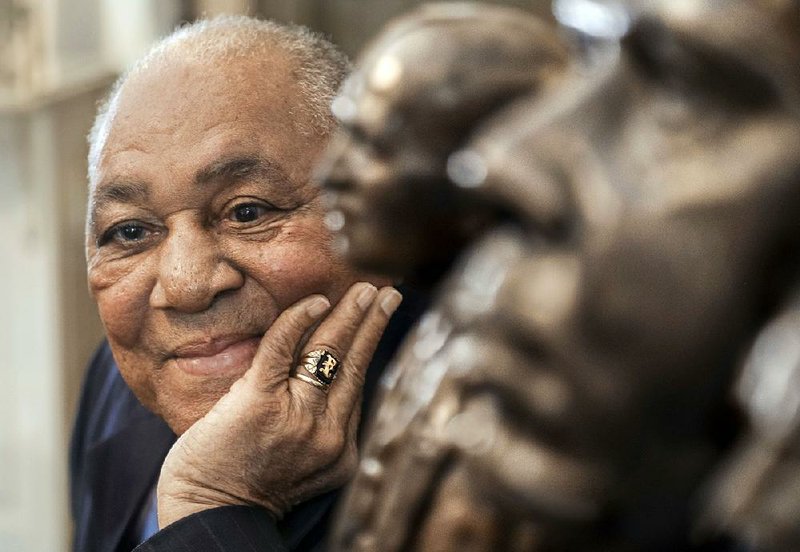Alonzo Warren Ashley, an award-winning physicist from Little Rock, who helped countless minority-group students excel in the world of science, technology, engineering and math, died Friday at 83.
Ashley was awarded the Presidential Award for Excellence in Science, Mathematics and Engineering Mentoring in 2005 from the National Science Foundation and was recognized by the National Society of Black Physicists, but it was his work with under-represented individuals in STEM education and within the workforce that set him apart.
"His legacy will be that he changed lives," said Jonathan Evans, a nuclear engineer with U.S. National Regulatory Commission who was mentored by Ashley. "He was a life-changer."
Ashley grew up in Tuskegee, Ala., and was inspired by the black leaders who were coming up when he was young.
"He would call them giants," said his wife, Wanda Ashley. "People like George Washington Carver were the leaders he looked up to as a young child, and I believe that motivated him."
Ashley was hired in 1968 by Stanford University, where he originated and developed the university's Linear Accelerator Summer Research Program for under-represented minority-group undergraduates in STEM studies. The program is now called the Science Undergraduate Laboratory Internship program.
The Presidential Award for Excellence website states the Stanford program pioneered by Ashley resulted in the university's recruitment and retention of at least 10 African-American Ph.D. physicists and dozens of minority masters degree-level engineers, computer scientists, mathematicians and environmental scientists.
Ashley retired from Stanford in 1999.
"He loved helping young people," Wanda Ashley said. "Education was extremely important to him. He was a very giving, kind and compassionate individual who liked to help others.
Ashley co-founded the Arkansas Mentoring and Networking Association.
Evans said Ashley started him on the path of STEM at an early age. The physicist helped Evans land his first internship with the University of Arkansas for Medical Sciences in Little Rock when Evans was a sophomore at Oak Grove High School near Maumelle.
"He helped me get internships, wrote recommendations and assisted me whenever I needed it," Evans recalled. "He absolutely opened up a lot of doors for me."
Jennifer Caldwell, a graduate student at Howard University, said she met Ashley her freshman year at the University of Arkansas at Pine Bluff and he changed her life as well.
"He was talking about internships for African-Americans at places that I could only dream of," she said. "I wanted to see the world, and these internships seemed like it could provide that possibility. I talked to him after he spoke, and we created a true bond."
Caldwell said her first internship was at Harvard, and she was inspired by that trip.
"I could see other minorities that were there as well, and it gave me the belief that we could move forward," she said.
Wanda Ashley said her husband would have a luncheon every year at Christmastime to educate high school students on the opportunities provided by internships.
"He would let these students hear from those who experienced those internships, and it would make them feel comfortable to leave home," she said.
Even in his final days, Ashley was working to help young people expand their educational opportunities.
"I had a young woman who called me today to tell me she was working with Alonzo to identify places for the next round of summer internships," Wanda Ashley said. "He was doing all this while being bedridden."
Ashley's legacy will live on in the ones he helped, inspired and taught, Evans said.
"He cared about others, and he devoted his life to it," he said. "He actually put his time, energy and all his effort into changing lives.
"He did all that by using his words. He showed that you don't need to make these $1 million gifts to change lives. You just have to reach back and help one person, and he did that for many."
State Desk on 10/08/2019
